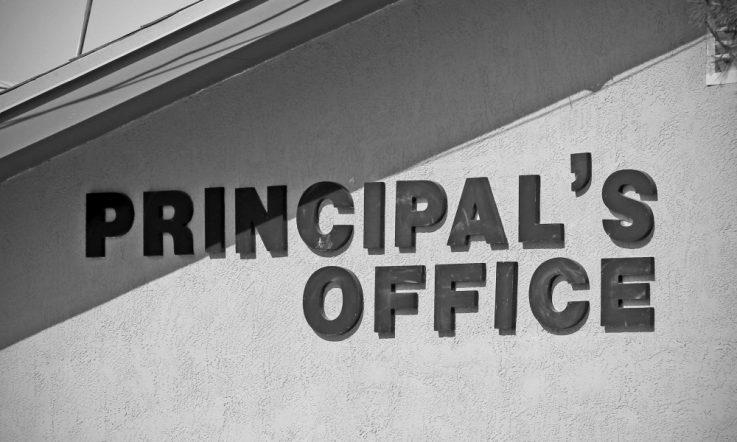Which factors determine the effectiveness of school boards? A new study by academics from Monash University’s Business School has found that board diversity, board practices, and principal influence over board decisions, all impact board effectiveness. They also have a sizeable bearing on the school’s financial and academic wellbeing.
The study examined board effectiveness across 32 independent secondary schools in Victoria, Australia. The findings have been published in the journal School Effectiveness and School Improvement.
‘We know relatively little about the influence of boards on school performance and educational quality, particularly the attributes to board effectiveness and its implication for school performance,’ the authors write in the report.
In Australia, around 15 per cent of students attend an independent private school. Independent schools are managed by school boards, which typically consist of both executive and non- executive members. Board members generally serve on a volunteer basis and are appointed from the school or local community.
Boards are responsible for setting the mission and vision of the school and its strategic direction. They also monitor educational programs, oversee financial decisions, and mitigate risk. The school principal usually attends board meetings but has no voting rights, and is accountable to the board for the school’s day-to-day running and educational programs.
Diversity of board composition
The researchers in this study set out to examine three key inputs into board effectiveness – diversity of board composition, board practices and principal influence.
Diversity of board composition can include aspects such as board tenure, size, gender and parent representation. They found having a diverse school board with varying levels of expertise is likely to enhance the board decision-making processes. It also allows for a wider range of perspectives to be heard.
‘On average, all boards showed a certain degree of diversity in terms of board members’ professional background, experience, education, age, and ethnicity,’ the report notes.
The findings also show that diversity of board composition is positively associated with board effectiveness. The authors say that this suggests ‘there is merit in seeking board diversity, particularly in relation to professional background, educational levels, industry experience, gender, and board tenure’.
When the researchers looked specifically at the board Chair’s personal characteristics, they found that age is positively associated with board effectiveness. They say that this finding adds to the existing empirical evidence that older Chairs have an advantage in terms of accumulated experience and valuable industry-specific and firm-specific knowledge.
Board practices
The researchers also examined board practices and the influence they have on the effectiveness of the board overall. Board practices refers to a wide range of board behaviour, such as questioning proposals and information from management, engaging in professional development opportunities, and evaluation of board performance.
‘The collaborative participation and discussions between board members and the principal also contribute to the culture of the board, influencing how power and control operate within the board,’ the researchers say.
The results show that board practices are positively associated with board effectiveness in independent schools, and the engagement and participation of board members is crucial to board effectiveness. The authors also suggest that providing professional development opportunities for members is likely to lead to more effective boards.
Influence of the principal
The influence of the school principal over board-level decisions impacts on the effectiveness of the board overall. The authors say findings from the study provide empirical evidence on the detrimental effect of a ‘power imbalance’ between boards and principals.
They note that while principals may inform the board’s decision making through their educational expertise, excessive influence over board decisions on long-term strategic issues may interfere with the accountability of the board. It also impairs the board’s independence in monitoring and advising functions.
‘Thus, a careful management of the power balance between the principal and the board is necessary to ensure board effectiveness is maintained,’ they write. ‘Ultimately, what is best for effective school governance is a balanced partnership model between the board and the principal where there is a shared understanding of board and principal roles and reduced likelihood of role conflict.’
Academic and financial performance
The study found that effective boards are associated with higher academic and financial performance. When measuring academic performance, the researchers looked beyond students’ academic results or test scores, to include other areas like engagement, wellbeing, pathways, enrolment, and parent and staff satisfaction.
Financial performance was measured by several indicators used to assess the school’s financial sustainability. These included securing government and other funding; meeting targets in the budget; maintaining short-term and long-term liquidity; maintaining capability to offer competitive compensation packages and to fund professional development; collection of tuition fees; and overall school financial performance.
‘Our additional analysis shows that board practices directly drive the financial performance of independent schools. This finding reinforces the important role of the board in ensuring the financial sustainability of schools,’ the researchers say.
References
Loh, C. M., Unda, L., Gong, Z., & Benati, K. (2021). Board effectiveness and school performance: a study of Australian independent schools. School Effectiveness and School Improvement, 1-24. https://doi.org/10.1080/09243453.2021.1939734



